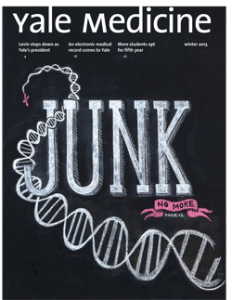Here we go again. The Adria Richards story has settled into a couple of common themes, and Ars echoes the conventional wisdom. I’m very disappointed in this lazy editorial.
First, look at this nonsense:
Let’s start by spreading the blame where it’s deserved: on nearly everyone involved. The “Boy’s Club” mentality is thankfully no longer acceptable in tech, but it’s still common—some people have actually described tech to me as “men’s work.”
It’s no longer acceptable, but it’s common? Huh. Somebody didn’t think about what they were writing. We’ll just announce that the problem is nonexistent, while sweeping the reality of the situation aside.
But I’d like to point out something sneakier. Here’s the common message:
“Forking a repo” and “big dongles” must rank somewhere around “0.5: classless brospeak” on the seismic scale of harassing/menacing behavior toward women. While such sexually inappropriate comments are completely unnacceptable in professional settings (to many men as well as women), neither merits firing unless someone had a history of making unwelcome comments.
I think we all agree 100% that no one ought to have been fired over this incident. The major villains here are the two companies that used this event as an excuse to axe a couple of employees.
But notice what else everyone is saying: what the two guys did was trivial and minor, “‘0.5: classless brospeak’ on the seismic scale of harassing/menacing behavior toward women”. Keep that in mind for a moment. That kind of thing has been said a lot.
Yet these two men don’t get all of the blame. One recurring theme on message boards and chat rooms, including our own, is that while Richards had every right to report the behavior of the two men to conference organizers, snapping their photograph and posting it publicly to “Twitter shame” them was a step too far (speaking of a step too far, there are other, more repugnant recurring themes among commenters, too). They’re right; going public was not the only way Richards could get a relatively minor issue addressed. She could have confronted the two men or she could have gone straight to PyCon. Her actions only escalated the situation.
It’s a “relatively minor issue”. OK, let’s go along with that for a moment…let’s say it really was an inconsequential, negligible faux pas by the two guys. But if that’s the case, what is this bullshit?
…snapping their photograph and posting it publicly to “Twitter shame” them was a step too far…
Was it something to be ashamed of, or not? Was it a horrible, embarrassing thing to publicize, or was it a “relatively minor issue”? You don’t get to have it both ways. Either it was too damaging to make public, or it was a slight affront that shouldn’t seriously affect any of the participants — it was a minute impropriety that was perfectly reasonable to mention on a casual, conversational medium like Twitter.
This is what’s really pissing me off right now: the flagrant dishonesty of all these people having the vapors over someone posting a photo on Twitter and saying someone’s behavior was “not cool”. Jesus. Have they ever fucking used Twitter? It’s non-stop chatter — just today I’ve been accused of being a “Nazi” and of being “evil”. Please, Ars Technica, do your tut-tut routine right now over all the naughty people ‘Twitter shaming’ right and left. Please also express your sadness that thousands of tweets are going up right now ‘Twitter shaming’ Adria Richards in far more outrageous terms than “not cool.”
Are people seriously proposing that somehow Twitter should be policed for manners, and we should start wagging our fingers at people who dare to rebuke others via that medium? If so, half my correspondents are going to have to shut up. This is ridiculous. Richards’ comment was minor, was appropriate, and was addressing a real issue in a reasonable way.
And then there’s this:
In a blog post explaining the story in her own words, Richards wrote about how, over the course of the jokes, she moved from “I was going to let it go” to “I realized I had to do something.” The moment of decision came after seeing a picture of a young girl on the main stage who had attended a Young Coders workshop. “She would never have the chance to learn and love programming,” Richards wrote, “because the ass clowns behind me would make it impossible for her to do so.”
Clearly, this is hyperbole. These two guys weren’t going to prevent anybody from doing anything. Suddenly, a couple off-color jokes represented all the serious forces that can hold women back from tech careers. While denouncing bad behavior certainly has its place, proportion is important—and this approach to these jokes simply makes it harder to have a sincere discussion about misogyny and men’s/women’s issues in the workplace.
It’s only hyperbole if you misinterpret it. No, I doubt Richards thought these two guys were going to run up on the stage and slap awards off the podium and denounce the young girl being recognized. Richards was referring to a culture that considers those kinds of off-color remarks reasonable in a professional setting. Remember, “it’s still common”. That is what inhibits women from participating in these opportunities.
We’re living in a world where those off-color jokes are dismissed as “classless brospeak”, not worth making a fuss over, while someone tweeting a picture of someone engaging in “classless brospeak” is a disproportionate response, and “makes it harder to have a sincere discussion about misogyny and men’s/women’s issues in the workplace”.
But unwanted sexual innuendo doesn’t? Both men and women make jokes about sex, of course, and there’s a tricky line to be drawn between what’s appropriate and what isn’t, but one of the things I’m seeing all over the place is that in the conversation about where to draw the line, women are expected to shut up; that when they do speak up, however mildly, and say “not cool” or “guys, don’t do that”, boom, the guyverse explodes and denounces the damned uppity woman in either the most furious and violent terms possible, or with polite little suggestions that maybe they should be quieter next time.
But you know, the latter is almost as bad as the former. It’s the privilege of the majority to use politeness to maintain the status quo, while it’s a necessity for the minority to assert the right to offend.





